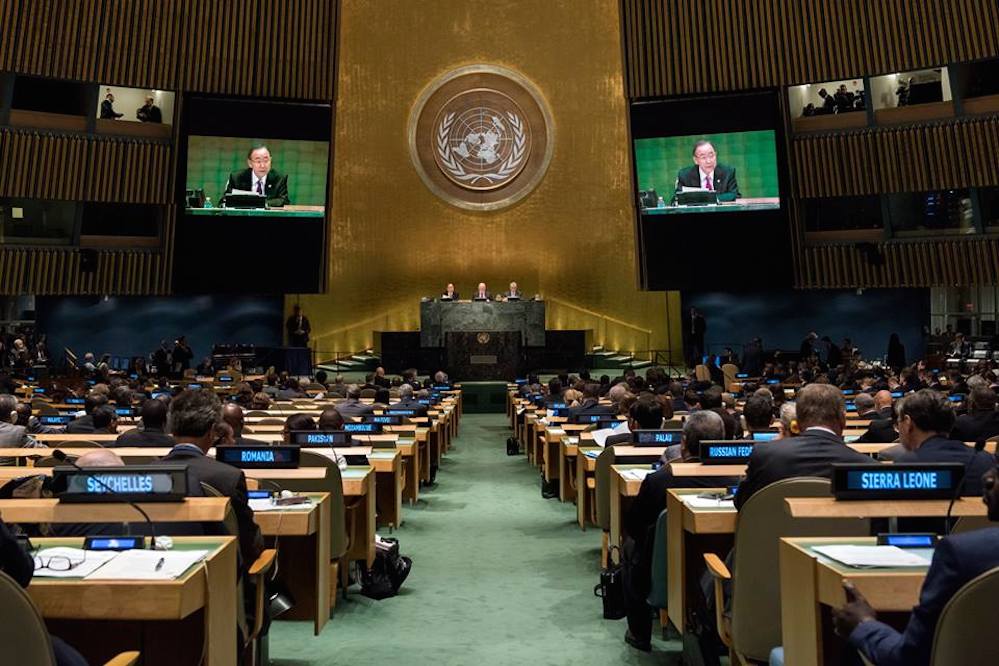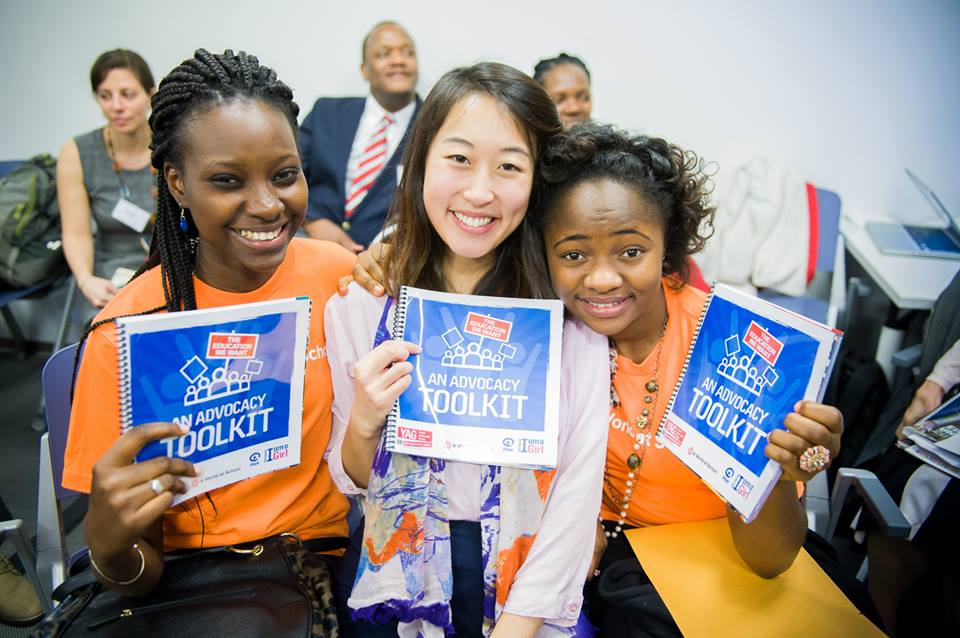
What is advocacy?

This page explains what advocacy is and what it can be used for. You will find examples of well-known advocates as well as young advocates for education.
Jump to
What is advocacy?
Advocacy is a powerful tool for driving change in education and ensuring every child has access to quality learning opportunities.
How does it work?
Advocacy includes many different types of activities. It can mean researching new solutions, creating coalitions of like-minded people, public campaigning to raise awareness and much more. The aim of advocacy is to create change.
Theirworld uses all aspects of advocacy to:
- Build evidence on what needs to change and how that change can happen
- Raise attention about important issues and give voice to those affected
- Influence those in power to provide leadership, take action and invest resources
- Create a positive change towards greater social justice and equality
What can you advocate?
Advocacy can be used to create change anywhere in the world on any issue of social inequality. If improvement is possible, it will benefit a group of people then there is a chance that advocacy will work.
Theirworld’s A World at School movement has built a network of likeminded youth leaders – the Global Youth Ambassadors – around the world who are leading advocacy on the issues we work on. These youth have tackled a wide range of issues in many different ways.
How do you do advocacy?
Advocacy can be done by a wide range of techniques including campaigning, social media campaigns, demonstrations, launching petitions and mobilising others to take action. Advocates work to find ways to organise evidence, attention and action to create positive change.
Research – of the facts about the issue, the problems it causes and possible solutions – is important to be able to persuade people to your way of thinking. It’s said that good advocacy speaks to “hearts, minds and hands” by making people care about the issue, understand the facts and know what they can do to help.
Who are famous advocates?
- Mahatma Gandhi challenged injustice and inspired the world to change through non-violent action
- Ida B Wells-Barnett campaigned for women’s rights to vote and African-American rights
- Shirin Ebadi works towards achieving gender equality and children’s rights in Iran
- Martin Luther King spoke out for civil rights for black people in the United States
- Nelson Mandela fought for the end of the apartheid in South Africa
- Malala Yousufzai is a Pakistani activist for female education and the youngest Nobel Prize laureate
What does advocacy mean for you?
By becoming an advocate, you can help to address a problem of inequality that you feel strongly about. Caring about an issue that you believe needs to change is a starting point.
An advocate will identify the things that are most likely to lead to success, gather the persuasive evidence necessary and consider the best way to find a solution.
What can you do?
The Youth Advocacy Toolkit is packed with advice and suggestions as well as step-by-step tools to help you take an idea and turn it into a plan for action to create positive change.
Created by A World at School, Plan International and the Youth Advocacy Group of the Global Education First Initiative, it was developed for young people and by young people, and will help you identify the steps you should take and where to concentrate your efforts.
Packed full of ideas, tools and inspiring stories, the Toolkit can help you effectively advocate for the right to an education. It’s for anyone who passionately believes that education is a force for good in the world.
Do advocates have to be involved with powerful people or organisations?
No. Anyone can become an advocate and can work towards making change happen in many ways whether or not they have links to organisations or people in authority.
Examples of Global Youth Ambassadors' advocacy
Salathiel Ntakirutimana is an advocate for education for orphans in Burundi. Peace agreements there made it seem as if education was improving when schools began to open and security was better. But school fees made education impossible for orphans, refugees and others affected by war.
Salathiel said: “Like some of my friends, I had just lost both my parents during the civil war and I could not afford to pay for school materials and fees. I was suspended from class, with the worry that failure to pay fees for the trimester would result in expulsion.”
He took action, helping to set up clubs for orphans across the country and going on radio to explain the problem. The education minister supported their cause and orphans were soon allowed to go to school for free.
Rolando Villamero Jr, from the Philippines, is an advocate for education for children with special needs. Getting them integrated into mainstream education had been identified as a priority – but teachers lacked resources and knowledge to help.
It was decided that talking to and teaching student teachers in order to influence what they thought about special needs education was the way ahead – and the Caravan For Inclusion began a tour of the country.
Rolando said: “The push for inclusive education came from young people themselves. They were being denied their rights and we wanted to support them… We had no money but we made use of everything we could.”
After three months more schools were teaching special needs children, more people believed it was possible and their support for inclusive education was much more widespread.
Advocacy in action
Advocacy can take many different forms. For example, Theirworld’s Global Youth Ambassadors were the driving force behind the #UpForSchool campaign. This campaign advocated for education for all young people, everywhere. The campaign’s petition gathered 10 million signatures and highlighted the importance of access to education globally. #UpForSchool is just one example of advocacy in action and the many forms advocating can take.
Next resource
